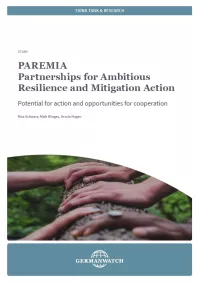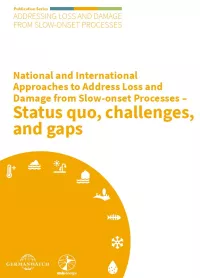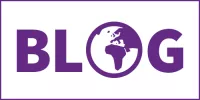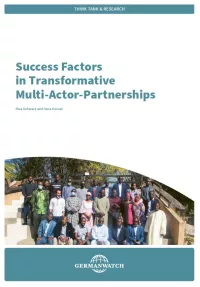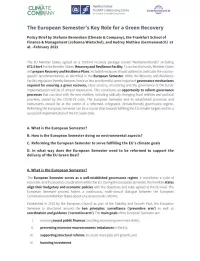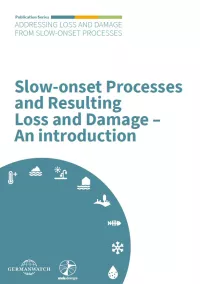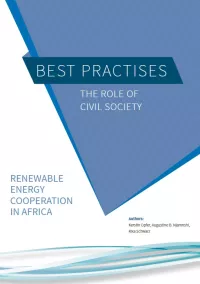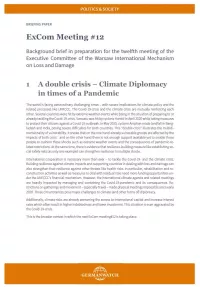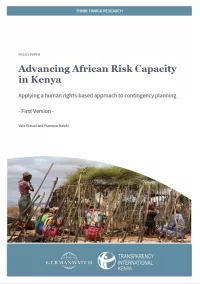Aktuelles zum Thema
In addition to amplifying extreme weather events, climate change also causes or intensifies slow-onset processes such as sea-level rise, desertification, biodiversity loss or permafrost thaw. Both types of climate change impacts cause loss and damage, impede the enjoyment of human rights and can be drivers for human mobility. In contrast to extreme weather events, dealing with loss and damage caused by slow-onset processes in the context of climate change is still neglected – both at the national and international level. The publication series "Addressing Loss and Damage from Slow-Onset Processes" responds to this challenge and aims to foster awareness of the urgency to act in this area and provide input for processes at the national and international levels.
As a response to the Covid-19 crisis the EU has agreed on a historic recovery package of 750€ Billion, which includes funds for EU member states. In order to apply for financial support, EU member states need to provide Recovery and Resilience Plans. They may take into consideration country-specific recommendations, developed annually to address macroeconomic imbalance issues among EU Member States as identified within the European Semester.
In addition to amplifying extreme weather events, climate change also causes or intensifies slow-onset processes such as sea-level rise, desertification, biodiversity loss or permafrost thaw. Both types of climate change impacts cause loss and damage, impede the enjoyment of human rights and can be drivers for human mobility. In contrast to extreme weather events, dealing with loss and damage caused by slow-onset processes in the context of climate change is still neglected, both at the national and international level.
Bonn/Berlin (25th Jan. 2021). Vulnerable people in developing countries suffer most from extreme weather events like storms, floods and heat waves, while the impacts of climate change are visible around the globe. Being the deadliest and costliest tropical cyclone in the South-West Indian Ocean, tropical Cyclone Idai was labelled “one of the worst weather-related catastrophes in the history of Africa” by UN Secretary General Antonio Guterres.
African countries have considerable and largely untapped potential in renewable energies. They have the potential to leapfrog to smart, participatory, distributed energy systems of the future without locking themselves into stranded fossil fuel assets and overly centralised energy systems. Thus, African countries can show the way to the future through bold plans and on-the-ground implementation.
The Briefing Paper on the 12th meeting of the Executive Committee (ExCom) of the Warsaw International Mechanism on Loss and Damage from 12-16th October 2020 is mainly directed at persons interested in the discussions on Loss and Damage within the UNFCCC process.
The meeting will take place in the middle of the Covid-19-crisis that comes across with severe challenges for vulnerable groups but also in regards of keeping up climate diplomacy.
African Risk Capacity (ARC) is a specialised agency that follows the vision of: “protect the livelihoods of vulnerable people in Africa against the impact of natural disasters through home-grown, innovative, cost-effective, timely and sustainable solutions.” As a regional, African-owned, and African Union (AU)-led insurance pool, ARC is an essential component of a more comprehensive approach to anticipatory climate risk management. It covers the issues of financial risk management through risk pooling and transfer. Contingency planning is a central part of ARC insurance, and a precondition to purchasing a policy. The specific advantage of an ex-ante mechanism such as this is its fast availability of support; thus, it help avert suffering.

